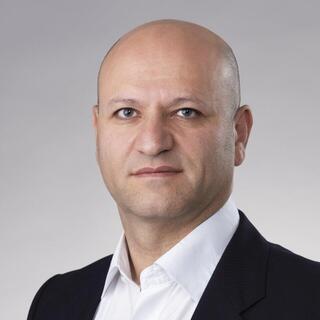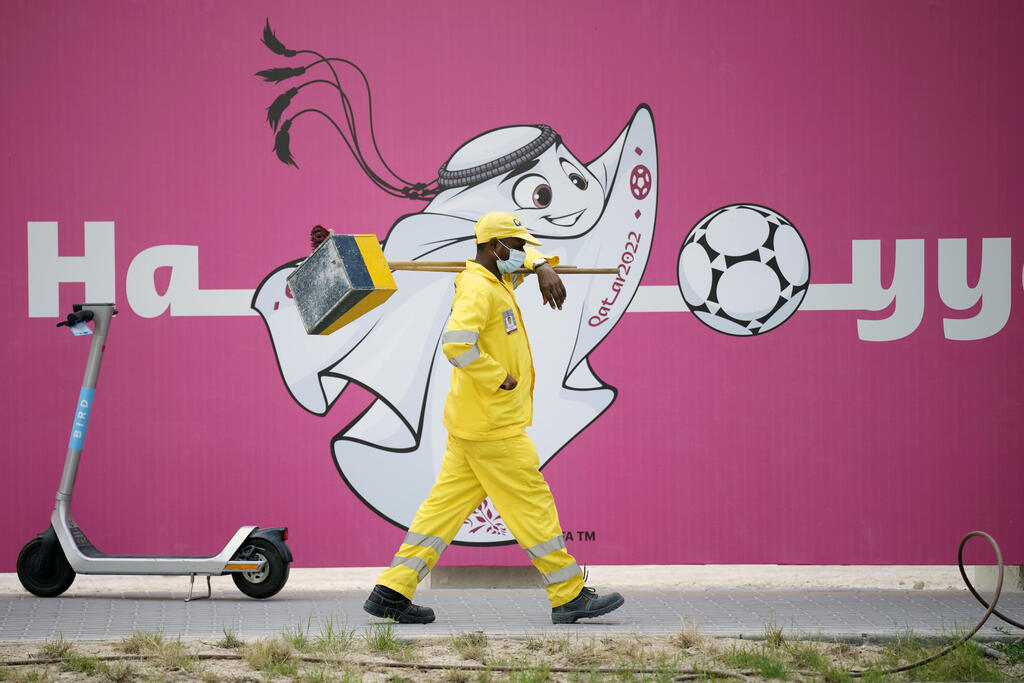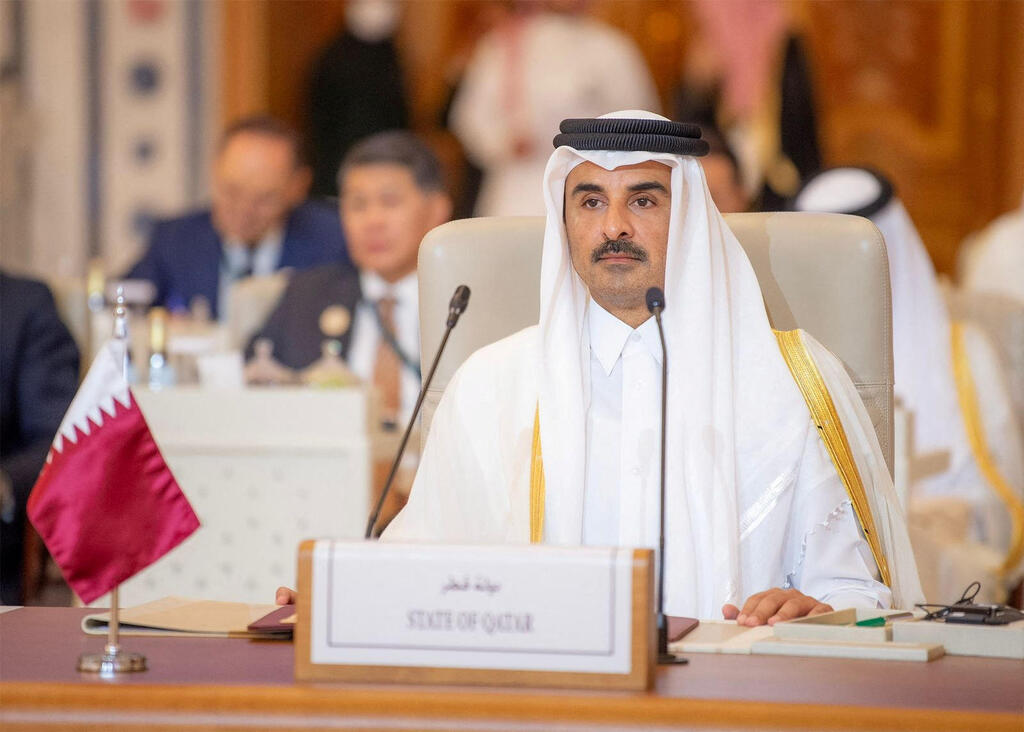Getting your Trinity Audio player ready...
It might be the daily frenzies in our life here that have made us forget that the term "Qatargate" has already made headlines in the past. The current scandal reflects Qatar’s global strategy to gain political influence, powered by the immense financial clout of the small emirate whose wealth stems primarily from natural gas deals. This method blends business interests with diplomatic engagement and a willingness to talk to all sides. But make no mistake—Qatar is not a neutral actor. At the heart of its policymaking is a clear sympathy for political Islam, as seen in its support for leaders of the Muslim Brotherhood, Hamas and the Taliban.
The strategy gained momentum around the 2022 World Cup, which was made possible in part through bribes to FIFA officials. The term "Qatargate" took hold after it was revealed that European Parliament Vice President Eva Kaili of Greece was bribed by Qatar to soften criticism over the exploitation of migrant workers—thousands of whom died during the construction of the tournament's venues. She was not the only one; two other members of parliament were also bribed.
In Israel, the first signs of a local Qatargate emerged in connection with the Fifth Dimension case, involving a cyber firm once headed by Benny Gantz. Reports indicated that the company enlisted retired U.S. general John Allen, former commander of American forces in Afghanistan, to promote deals with Qatar. The FBI later launched an investigation into Allen for allegedly lobbying on Qatar’s behalf, leading to his resignation as president of the influential Brookings Institution, a key player in Washington policy circles. The company shut down in 2018, and investigations into the matter were later closed.
“Qatar views its relationship with Israel as a strategic asset,” explains Dr. Ariel Admoni, an expert on the Gulf state. “The ties developed gradually since the 1990s and are based on the understanding that the road to Washington runs through Jerusalem.” Ironically, he adds, Doha’s concern over the current scandal is not the bribery allegations themselves, but rather the possibility of being accused of maintaining close ties with Israel—or even of being pro-Israel.
Such claims have been echoed by critics, including Egyptian blogger Mohamed Kandil, who said: “Qatargate has torn off the masks covering the warm relationship between Israel and Qatar. Qatar tries to portray itself as leading the fight against normalization and standing with the resistance, but this scandal exposes its double standards and hypocrisy.”
Qatar’s global reach
The Qatari octopus operates through several coordinated arms. The most powerful of these is economic, led by the Qatar Investment Authority (QIA), whose assets are estimated at $526 billion. Through the QIA, Qatar has established holdings in the UK’s Harrods, Heathrow Airport and Rolls-Royce, in Deutsche Bank in Germany and in the Paris Saint-Germain soccer club in France. This financial arm is also active in Israel, with investments in high-tech, a stake in the insurance company Phoenix (partly via Jared Kushner’s investment fund) and a 2021 diamond trade agreement.
The second arm is influence over global academia, particularly in the United States. Between 2001 and 2021, Qatar reportedly donated approximately $4.7 billion to American academic institutions, making it the largest foreign donor. This funding has come at a cost, evident on U.S. campuses such as Columbia University after October 7—with anti-Israel protests and a marked indifference toward rising antisemitism. While the current U.S. administration is addressing the antisemitism issue, it has not halted the flow of Qatari funds.
Israeli academia has also become a target of Qatar’s influence campaigns. “In December 2023, after I published a policy paper outlining the recommended approach to Qatar following October 7, a Qatari official contacted me in an attempt to argue that the content was inaccurate and to encourage a more favorable tone in future publications,” says Dr. Moran Zaga, an expert on Gulf states. “From that experience, you realize that in Qatar, they read and monitor everything that is written about them.”
In the media sphere, another Qatari arm is at work. Beyond Al Jazeera—which promotes itself under the slogan “The opinion and the other opinion” but in practice fosters a subversive discourse aimed at Arab audiences over the heads of their governments—Qatar also funds influential outlets such as Al-Quds al-Arabi and The New Arab, both based in London. The emirate also sponsors opinion leaders like Azmi Bishara, founder of Israel’s Balad party and a key intellectual in the Arab world, who amplifies the policies of the Al Thani dynasty—carefully avoiding any criticism of the gilded cage he lives in, which stands in stark contrast to his stated ideals.
In the context of information warfare, Qatar has also been recently suspected of spreading false reports that sparked a media storm in Israel, including claims of heightened Egyptian military readiness for a possible confrontation with Israel.
Tools of influence
Despite its many controversies, Qatar has never faced international isolation—aside from a brief Arab boycott over its subversive activities. Former U.S. secretary of state Antony Blinken once described Qatar as playing a “constructive role” and as “America’s eyes in Afghanistan.” His successor, Marco Rubio, called the country “a trustworthy partner,” while President Donald Trump’s Middle East envoy Steve Witkoff praised Qatar’s generosity—highlighted, for example, by its $623 million purchase of a Manhattan luxury hotel in which he reportedly had a stake.
4 View gallery


Former US secretary of state Antony Blinken and Qatari Prime Minister Mohammed bin Abdulrahman bin Jassim Al Thani
(Photo: Reuters)
Against this backdrop, certain ironies emerge—such as Qatar launching an anti-corruption award with the United Nations, or participating in a Munich conference two months ago focused on stopping terror financing.
Qatar, for its part, does not hesitate to use its levers of influence openly. In December, the country threatened to halt gas exports to Europe—where it hopes to replace Russia as a major supplier—if legislation advanced imposing fines on companies that fail to meet human rights and environmental standards. “We’re not playing games,” declared Qatar’s energy minister.
Immediately after October 7, then-British prime minister Rishi Sunak called for sanctions on Qatar. Yet just two weeks later, following a visit to London by Qatar’s crown prince, he praised Doha effusively.
Qatar strengthens its economic persuasion efforts through mediation in the release of Western hostages—such as Americans held by the Taliban or in Iran, Ukrainian children abducted to Russia and, more recently, Israeli hostages held by Hamas.
“Qatar is emerging as the defense attorney for terror groups engaged in human trafficking,” said Jonathan Schanzer, vice president at the Washington-based Foundation for Defense of Democracies, a think tank aligned with Republican circles.
Doha also reminds the world that the largest U.S. military base in the Middle East is located on its soil—an asset of major strategic value, particularly amid growing talk of potential strikes on Iran, with which Qatar maintains friendly ties.
This balancing act produces contradictions. The Trump administration took a hard line on all actors associated with radical Islam, yet refrained from criticizing Qatar’s close relations with terrorist groups. European nations that champion human rights continue to welcome Qatari leaders with respect. And, as revealed this week, even in Israel there are those in the Prime Minister’s Office who, on the one hand, leak information to international media portraying Hamas—Qatar’s protégé—as the party rejecting negotiations (as seen in the Bild report), while on the other hand work to improve Doha’s image and present it as a constructive force in advancing a hostage deal.
Perhaps the most striking expression of these contradictions is the deafening silence of the Arab world—much of which remains hostile toward Qatar—in the face of the current scandal. Unlike their close scrutiny of developments in Gaza or political upheavals in Israel, Arab media has remained nearly silent. It seems few in the region are willing to provoke Qatar.
As one senior Qatari official told The Washington Post this week: “This isn’t the first time we’ve faced slander from those who don’t want the conflict to end or the hostages to return”—a familiar refrain of denial and deflection.
Israel and what comes next
Israel learned the Qatari lesson the hard and tragic way. On the eve of October 7, Qatar had cemented its status as a vital strategic asset, particularly due to its involvement in Gaza. It had become the primary financial lifeline for the impoverished enclave and was seen as a key player enabling security arrangements. Qatar also played a significant role in shaping the prevailing strategic conception. It served as a central channel of communication between Israel and Hamas—one through which a false image was projected, portraying Hamas as deterred and focused on civilian matters. In reality, this narrative was part of the terror group’s broader deception.
Despite the scars left by October 7, Israel’s close ties with Qatar have continued, primarily due to the Gulf state’s critical role in negotiations for a hostage deal. In parallel, however, Israel must absorb a series of blows—from Al Jazeera’s incitement, to a statement by a Qatari legislative council member declaring that “October 7 was just the beginning,” to Doha’s call for international oversight of Israel’s nuclear program. Even the Shin Bet’s investigation into October 7, which found that some Qatari funds sent to Gaza had reached Hamas’ military wing, prompted an unprecedented official Qatari response rejecting the findings as “false accusations and incitement driven by personal motives.”
Get the Ynetnews app on your smartphone: Google Play: https://bit.ly/4eJ37pE | Apple App Store: https://bit.ly/3ZL7iNv
“Looking ahead, Israel must designate Qatar as a state sponsor of terrorism,” says Udi Levi, former head of the Mossad’s now-defunct Tzaltzal unit, which focused on countering terror through financial means. “For now, maintaining ties with the Qataris is crucial to secure the hostages’ release. But immediately afterward, a major policy shift is needed: neutralize Qatari influence in the Palestinian arena, encourage Saudi Arabia and the UAE as alternatives, ban Israeli business dealings with Qatar and launch a global campaign against the emirate’s financial support for terror groups and state sponsors of terrorism, as well as its role in radicalizing the Muslim world through its media outlets.”
“Qatar won’t disappear. The Arab world and the international arena already understand that—and instead of confronting it, they’re cooperating. It’s important not to develop a hostile stance toward Qatar. The Qataris may currently be harming Israel, but they could do far more damage if officially labeled an enemy.”
Dr. Moran Zaga offers a more cautious view. “Qatar won’t disappear. The Arab world and the international arena already understand that—and instead of confronting it, they’re cooperating. Still, red lines must be drawn regarding support for terrorism, and efforts should be made to redirect Qatar’s influence in the Palestinian system toward backing moderate actors. In any case, it’s important not to develop a hostile stance toward Qatar, as happened with Turkey. The Qataris may currently be harming Israel, but they could do far more damage if officially labeled an enemy.”
Qatargate is sending shockwaves through Israel—and rightly so. While foreign interference in Israeli politics is not new, with Soviet infiltration dating back to the 1950s and ’60s, those operatives acted out of ideological motives. Today, the driving force is money. And so, during a war against enemies openly committed to Israel’s destruction, individuals with ties to the political elite are conducting business with the state that bankrolls those very enemies. This deeply distorts Israel’s strategic decision-making, normalizes moral corruption and gravely undermines its national interests.





